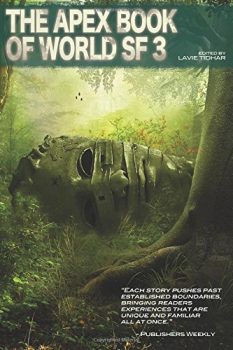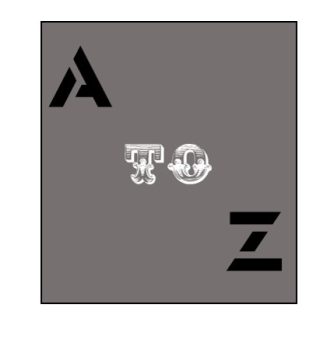A to Z Reviews: “The City of Silence,” by Ma Boyong
Over the past several years, the Anglophonic worlds has become more aware of the science fiction being published in modern China. This is due, in part, to the work and outreach being done by Science Fiction World, a magazine from China with a circulation of more than 130,000 as well as publishers like Neil Clarke who have sought out Chinese fiction to publish in translation.
Ken Liu, who has won multiple Hugo Awards, a Nebula Award, and a World Fantasy Award, has also worked to bring Chinese science fiction to English readers with his translation of Cixin Liu’s The Three Body Problem and the publication of the anthology Invisible Planets, which offered translations of a dozen short stories by seven Chinese authors. One of the authors included in the book is Ma Boyong, represented by his story “The City of Silence,” which Ken Liu translated into English.

“The City of Silence” is a surprisingly subversive story about censorship. The main character, Arvardian, lives a solitary life working as a computer programmer. In a world where the State issues daily update lists of “Healthy Words” which indicates which terms may be used and implies words which no longer exist, Arvardian feels nostalgic for the free-flowing online discussions he remembers from years earlier, which leads him to apply for access to the heavily restricted bulletin board system.
Arvardian’s rare foray outside his rooms to finish the application process gives Ma a chance to show more of his world, Listeners which people have to wear to allow the State to ensure they aren’t using any prescribed words, and the use of pauses between words to make it easier to determine what is being said. Given this society, it is clear why people may choose to remain sequestered rather than intermingle.
After Arvardian is given access to the BBS, he discovers a series of clues that leads him to the “Talking Club,” which has figured out a way to jam the State’s eavesdropping and permit a small amount of freedom for a short time once a week. There he meets four like-minded people and learns about the larger world. One of the members, Duras, had read George Orwell’s 1984 years earlier and tells the other members the story, serialized over several meetings.
Ma’s dystopian world with its focus on censorship seems a strange story to come out of China, not because it is unexpected that an author would want to attack censorship, but because of the Western perception that Chinese censors limit anything that can be construed as criticism of government policy. It turns out that in translating Ma’s work, Liu made some changes, moving the setting from New York to “the Capital of the State,” which had the effect of shifting the criticism from the West to China, itself.
“The City of Silence” does an excellent job of building of a society and a mindset. Ma shows a world in which the repression of the State is accepted and then introduces an element that struggles against that repression, eventually showing that there is a larger, but distant and ineffectual resistance to the State. He also describes the conflict between the State and individuals that leads to the State taking more reactive and more repressive actions, moving from a list of banned words to the “Healthy” list.
The introduction of 1984 isn’t necessary to get Ma’s point across, but the reputation of the novel and the similarities between the State and Big Brother, as well as certain similarities of plot and relationship, strongly reinforce the cautionary message contained in “The City of Silence.”
As always, it is difficult for a non-native reader to be able to assess the quality and accuracy of a work in translation, but Liu’s translation of Ma’s “The City of Silence” is a powerful story. While some changes were made, they were, apparently, made in a collaborative effort between author and translator, resulting in a work worth tracking down.
 Steven H Silver is a twenty-time Hugo Award nominee and was the publisher of the Hugo-nominated fanzine Argentus as well as the editor and publisher of ISFiC Press for eight years. He has also edited books for DAW, NESFA Press, and ZNB. His most recent anthology is Alternate Peace and his novel After Hastings was published in 2020. Steven has chaired the first Midwest Construction, Windycon three times, and the SFWA Nebula Conference six times. He was programming chair for Chicon 2000 and Vice Chair of Chicon 7.
Steven H Silver is a twenty-time Hugo Award nominee and was the publisher of the Hugo-nominated fanzine Argentus as well as the editor and publisher of ISFiC Press for eight years. He has also edited books for DAW, NESFA Press, and ZNB. His most recent anthology is Alternate Peace and his novel After Hastings was published in 2020. Steven has chaired the first Midwest Construction, Windycon three times, and the SFWA Nebula Conference six times. He was programming chair for Chicon 2000 and Vice Chair of Chicon 7.

Added to the TBR pile.